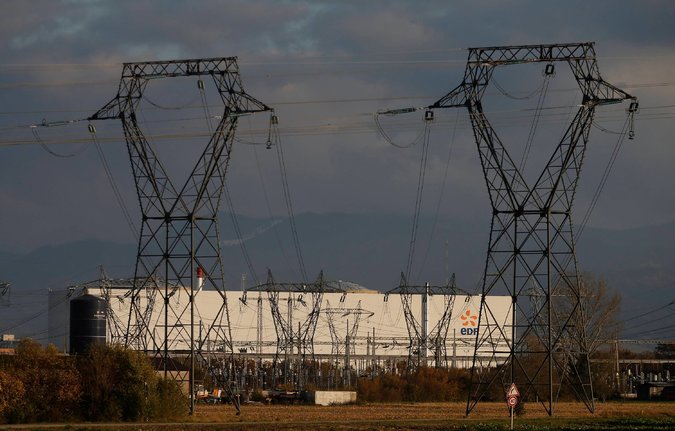Anxiety over the rising number of foreign workers, especially from Eastern Europe, who are posted to jobs in agriculture, construction and other labor-intensive sectors was a pivotal factor in Britain’s vote last year to leave the European Union.
That point is not lost on politicians, including Mr. Macron, whose public-approval rating has dropped precipitously in his first months in office. In an interview with several European newspapers in June, the French leader urged Eastern Europe not to treat the bloc as a “supermarket,” and warned that governments would face consequences if they flouted regional values.
“Do you think I can explain to the French that businesses are closing in France to move to Poland while construction firms in France are recruiting Polish workers because they are cheaper?” he said during the interview. “This system does not work right.”
But the charge has infuriated the leaders of Poland, Hungary and the Czech Republic, widening a rift with West European countries that broke out during the Continent’s refugee crisis, when both sides clashed over plans to distribute asylum seekers across the region.
East European leaders accuse Mr. Macron of protectionism. They question why France and its neighbors have not cracked down on employers abusing the system.
They argue that their countries, which joined the bloc in 2004 during the European Union’s largest single expansion, should be allowed to compete on lower wages to stoke growth and catch up. When Poland and nine other Central and East European countries joined, many older members initially restricted access to their labor markets.
On Wednesday, Mr. Macron sought to smooth the frictions, saying he wanted to push for new rules to combat fraud and to limit to one year the length of time an employee could be posted to another European Union country. His three-day itinerary includes stops in Austria, Romania and Bulgaria, and meetings with the prime ministers of Slovakia and the Czech Republic while in Austria.
Advertisement
Continue reading the main story
“I deeply believe,” Mr. Macron said, “the time of the European reconstruction has come.”
“The posting of workers directive, as it functions, is a betrayal of the European spirit,” he added, during a joint news conference with Chancellor Christian Kern in Salzburg, Austria.
Newsletter Sign Up
Continue reading the main story
Thank you for subscribing.
An error has occurred. Please try again later.
You are already subscribed to this email.
While posted workers make up less than 1 percent of Europe’s labor force, eastern bloc leaders have vowed to fight any efforts to restrict the rights of their citizens to work across the region.
The European Parliament has found numerous questionable practices used by companies to recruit cheaper labor. These include setting up fake mailing addresses in low-cost member-states and bouncing workers between several countries to avoid the increased costs that permanent employment would bring. Other companies force workers to declare themselves as self-employed so the firms can avoid paying social security contributions.
The practice can easily spiral into exploitation when posted workers lack the social protections given to local hires. The host country also loses tax revenue and social security deposits to the East European countries where the workers’ pay slips are based.
The issue has long been politically charged in Europe, but it flared anew during the French presidential election when Mr. Macron and his far-right opponent Marine Le Pen cited the free movement of cheap labor as a source of joblessness and unfair competition.
A high-profile labor abuse case in March also raised scrutiny.
One of the biggest French construction companies, Bouygues Travaux Publics, was fined around 30,000 euros, or $35,000, after lengthy government investigations found it had contracted with exploitative, low-cost employment agencies to hire hundreds of Polish and Romanian workers.

The workers, who were enlisted to help build a nuclear power plant run by Électricité de France, known as EDF, in Flamanville, a town on the country’s northwest coast, received little to no health care coverage from 2009 to 2011, when the facility was being constructed. The employment agencies were also charged with bilking the French state of social security contributions totaling nearly €12 million.
Last year, the European Commission proposed reforming the system to require that posted workers be paid on par with local ones, and that any posting occur “within a climate of fair competition and respect for the rights of workers.” But Central and East European countries halted the proposals, and asked Brussels for a further review.
Some member-states are taking matters into their own hands.
Austria recently tightened measures to deter domestic companies from contracting low-cost European laborers. This month, the government fined an Austrian engineering group, Andritz, €22 million for using a Croatia-based contractor to hire around 200 Croatian workers for a €7 million construction project, citing a violation of national fair labor laws.
Advertisement
Continue reading the main story
An Austrian industry body has appealed, saying the government crackdown violated European Union rules, hindered entrepreneurship and jeopardized jobs in Austria.
In Spain, the National Union of Spanish Transport Associations has warned that social dumping is the most serious problem facing the sector. The group estimated that half of all truck drivers coming into and out of the country hailed from Eastern Europe, where wages were as much as eight times lower than in Spain.
Many of the truckers are employed by Spanish companies that set up a head office in Poland or another eastern country. The companies then pay the lower taxes and social security charges of the cheaper country, avoiding the higher Spanish fees.
It is the type of practice that Mr. Macron wants to limit.
“A Europe that protects,” the French president said, “is a Europe which is able to solve the issue of posted workers.”
Continue reading the main story
Article source: https://www.nytimes.com/2017/08/23/business/economy/france-emmanuel-macron-eastern-europe.html?partner=rss&emc=rss
Speak Your Mind
You must be logged in to post a comment.